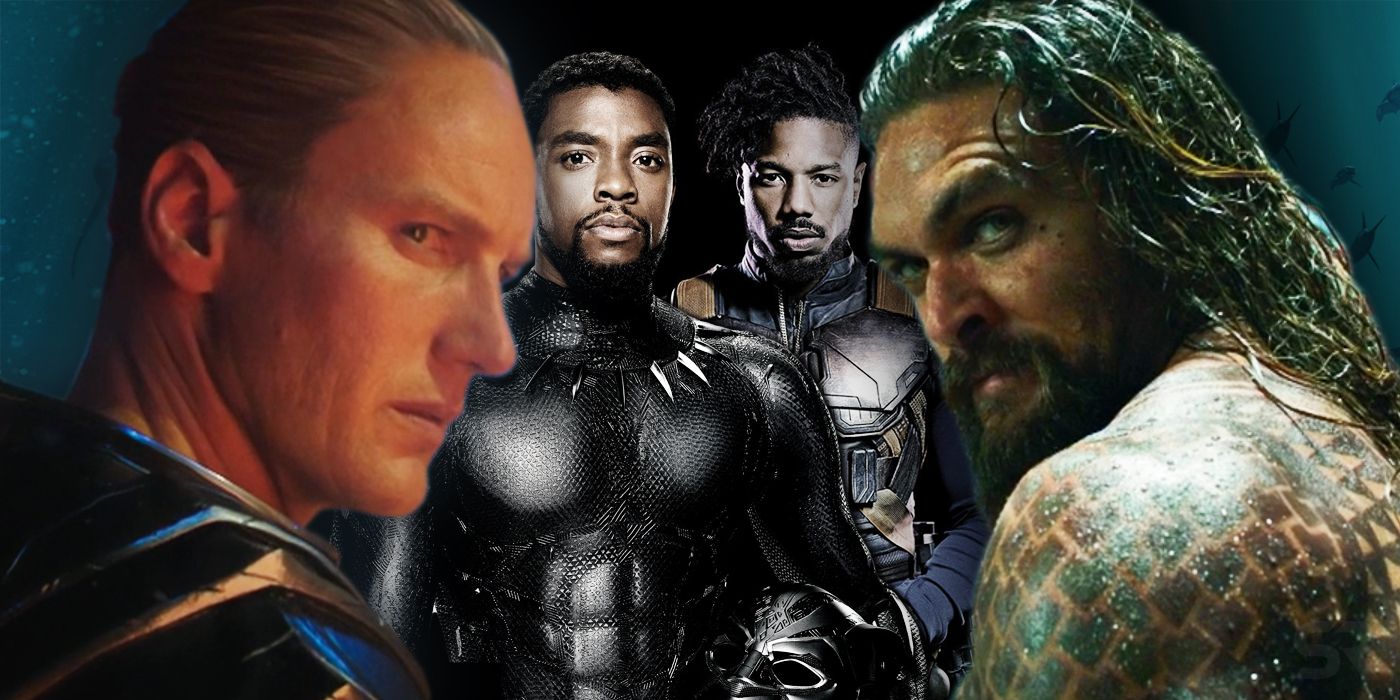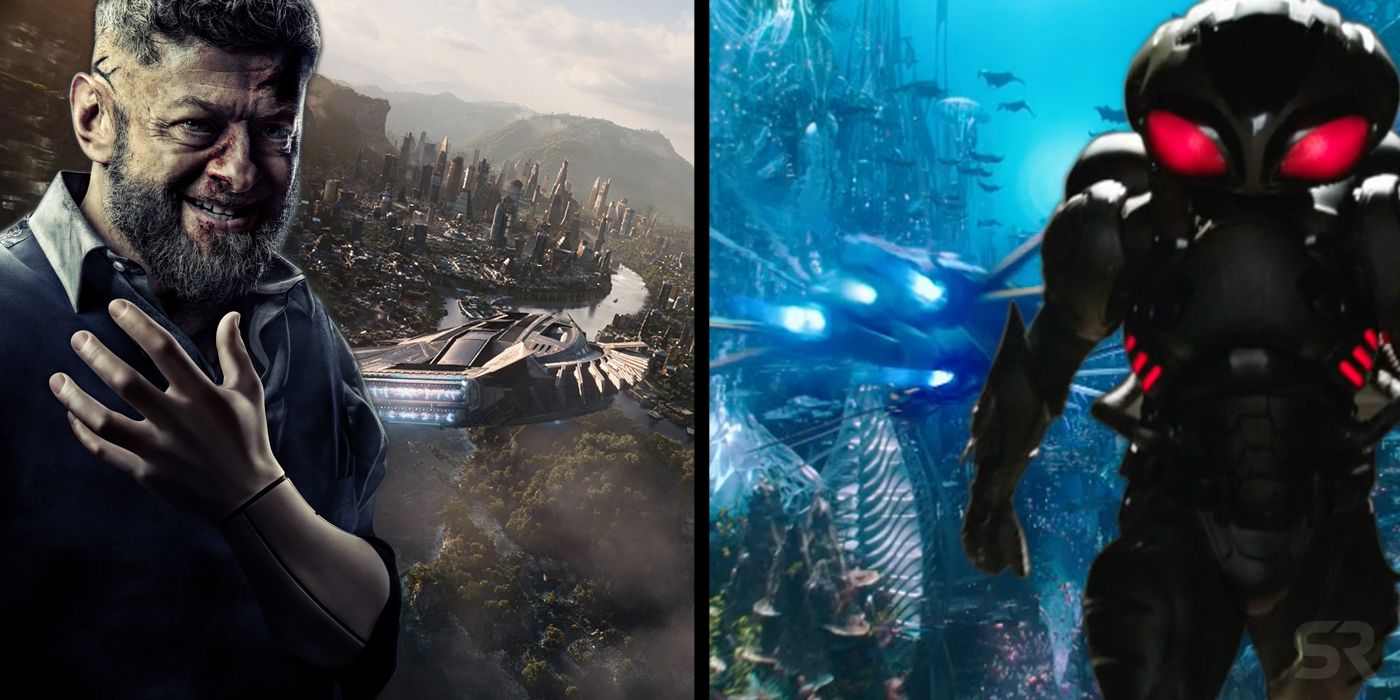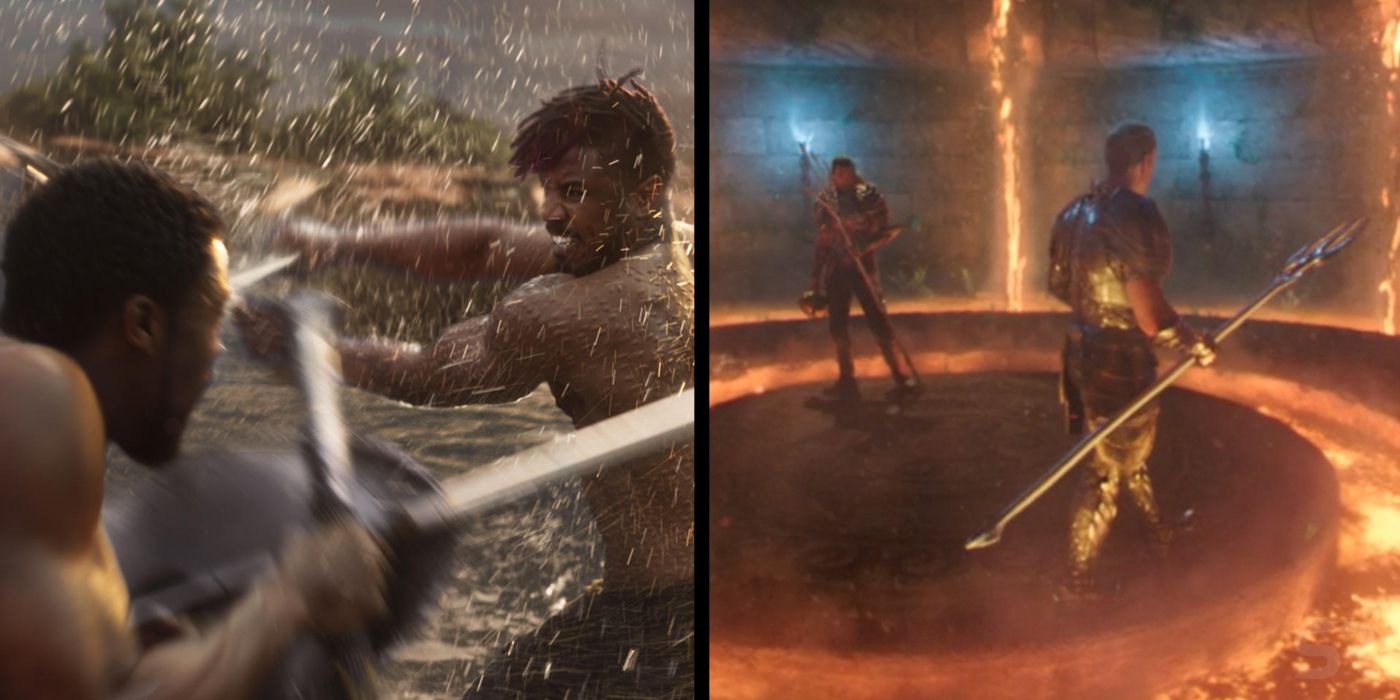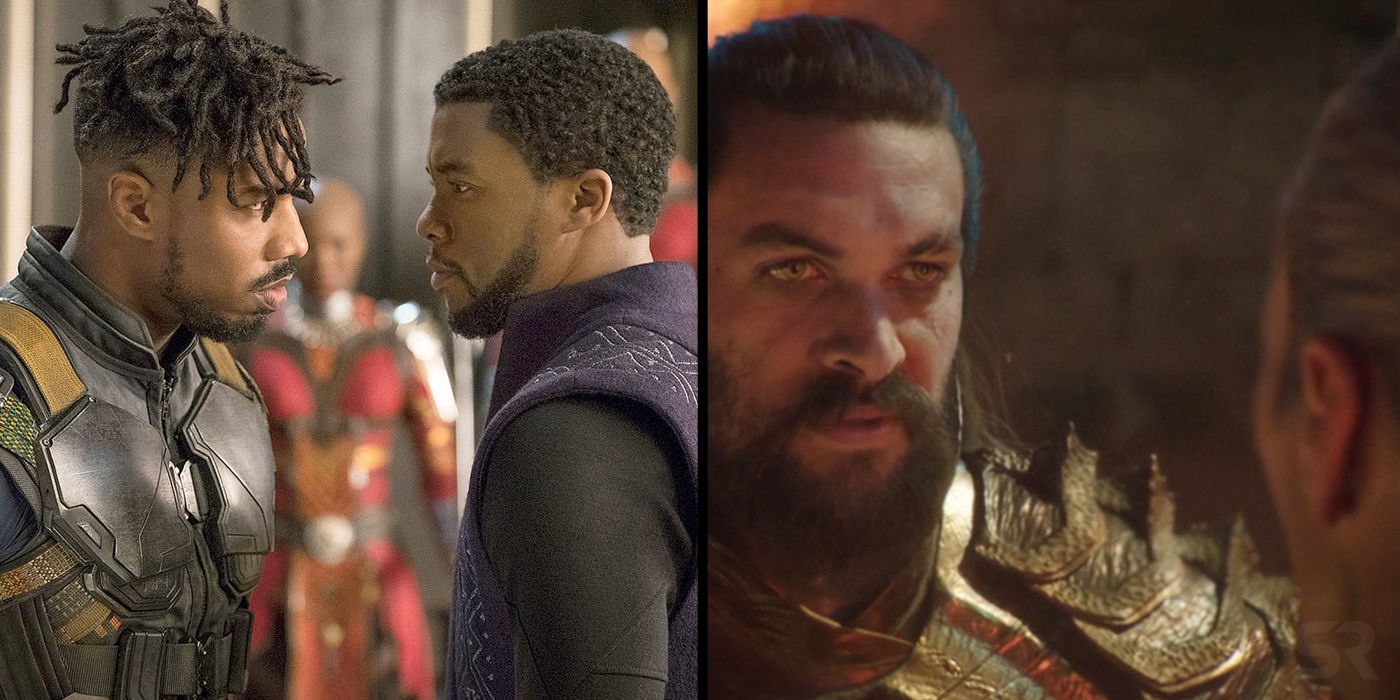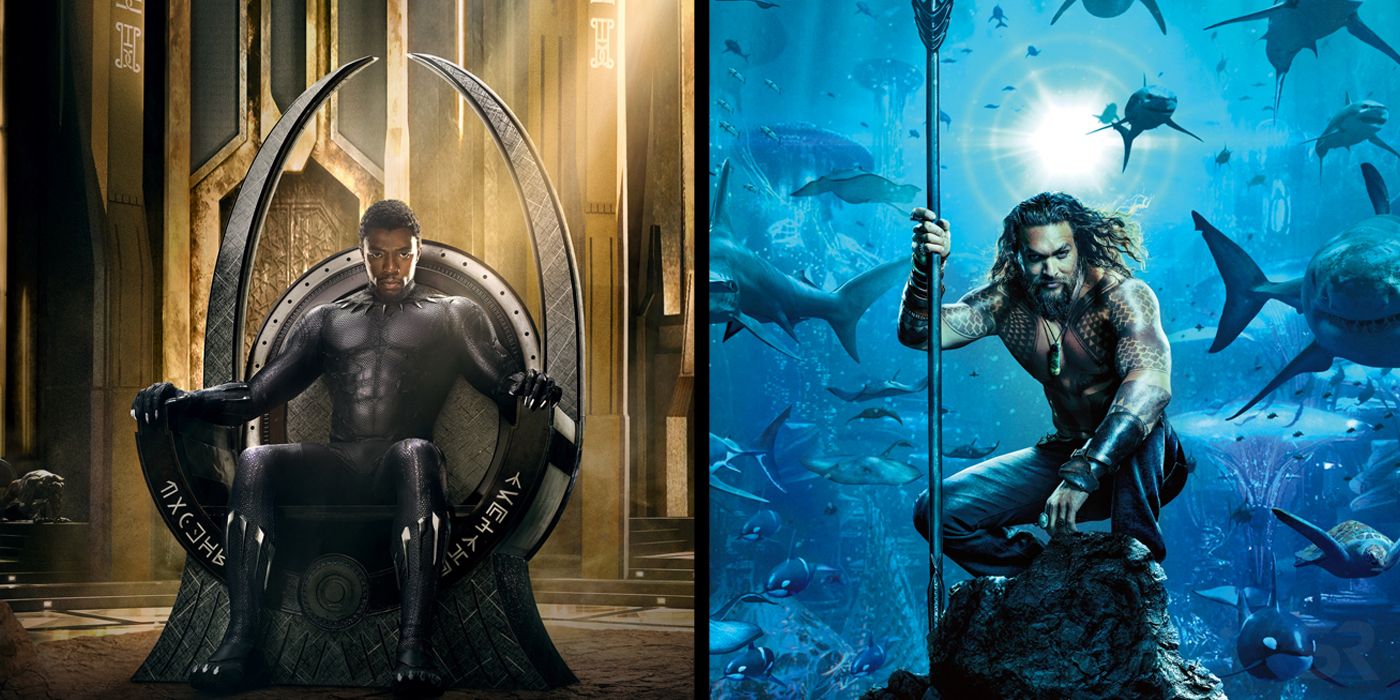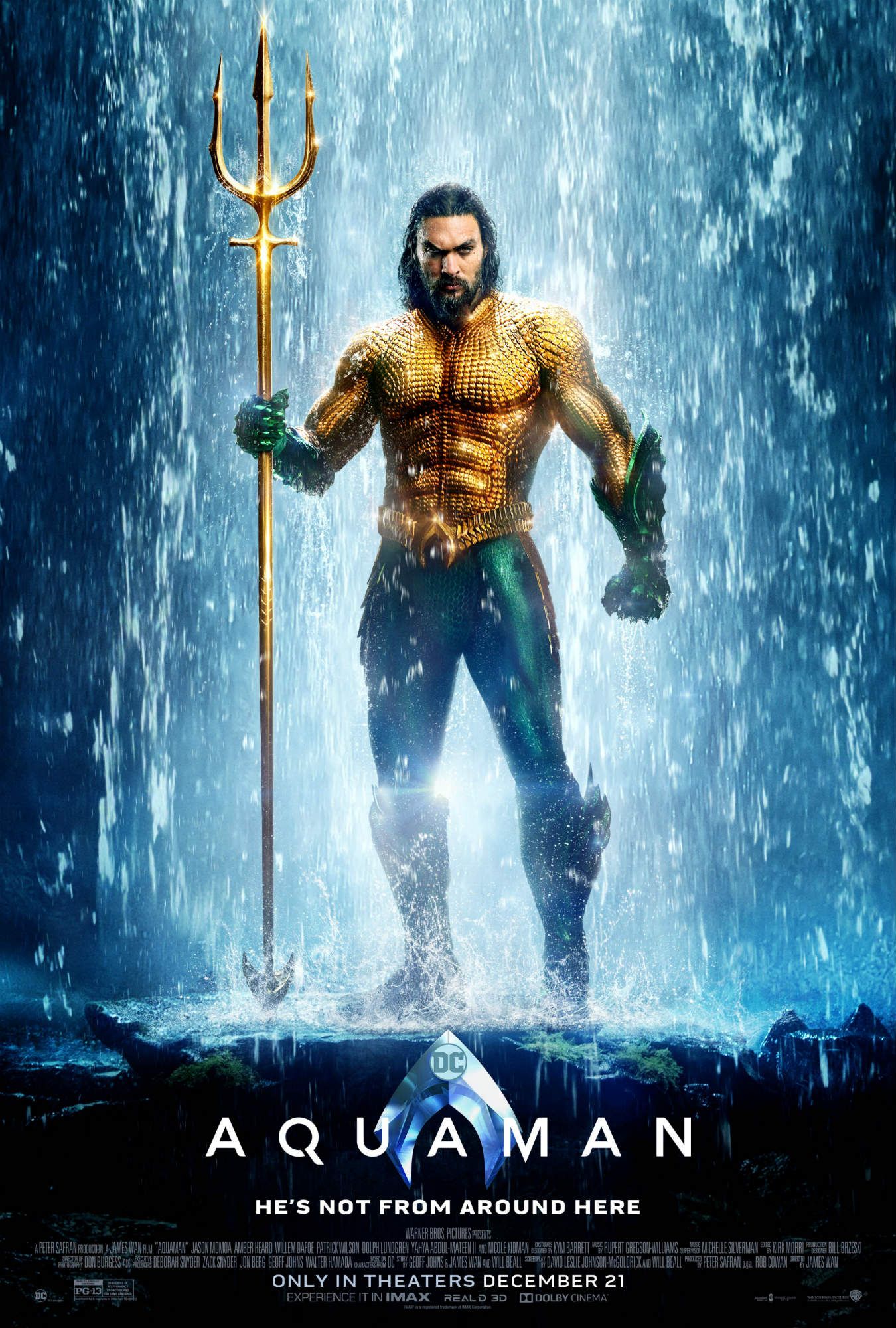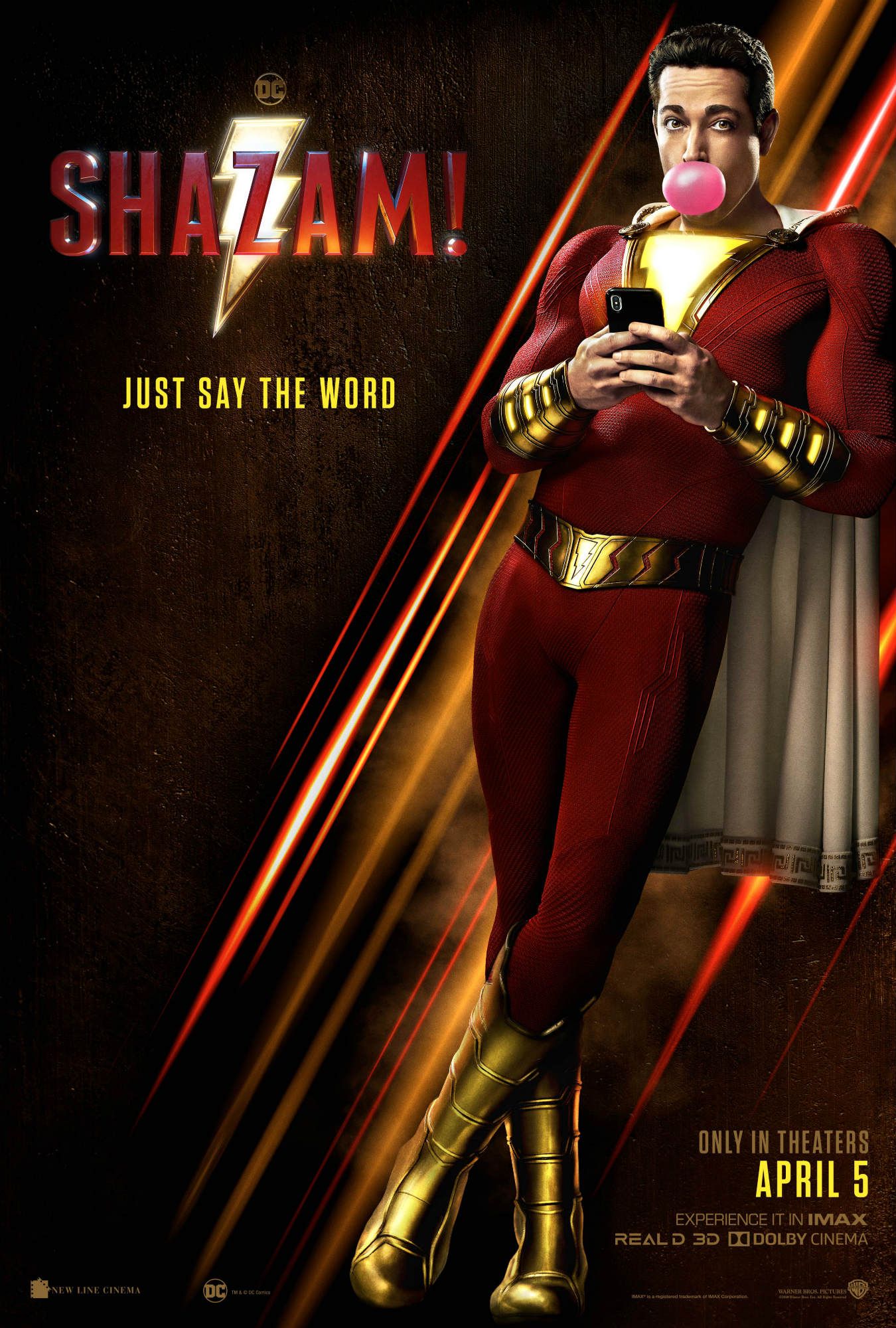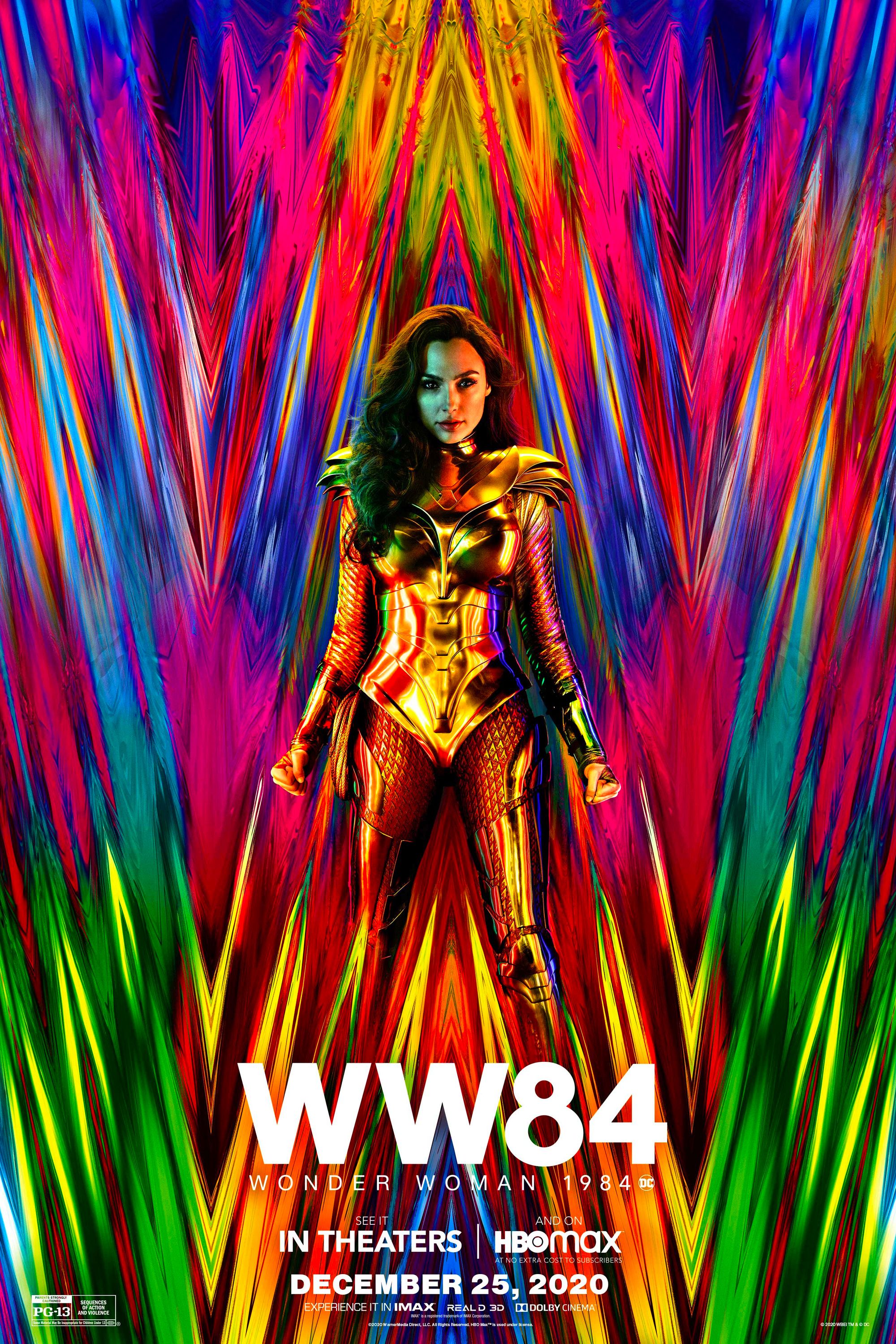If you watched the Aquaman trailer and thought it all looked a bit familiar, you're not alone. The first big screen outing for Arthur Curry is the start of a new, post-Justice League era for the DCEU, yet it bears a striking resemblance to Marvel's 2018 release Black Panther.
Contextually, Black Panther and Aquaman already have quite a bit in common before we get to the content of their movies. They're well known comic book characters yet have rather small dedicated readerships (at least compared to their publishing counterparts), and were both introduced on the big screen as part of bigger ensemble movies within their shared universe (Captain America: Civil War and Justice League respectively) that teased their homeworlds (Wakanda and Atlantis) before it was explored properly a year or two later.
Related: Aquaman Trailer Breakdown: 25 Secrets You Missed
But, taking a look at the resulting movies, the similarities stand out so starkly they could almost be described as "twin movies". However, diving into parallels reveals one starting difference bigger than an ocean trench: Black Panther's villain is Aquaman's hero.
It's worth clarifying that in citing these similarities and contrasts, there's no implication of "copying" or "responding". Black Panther was heavily influenced by all eras of the comic book, pulling threads from the character's 52-year history to create a sprawling, best-fit adaptation, while Aquaman is more directly influenced by Geoff Johns' New 52 reboot (a brand-wide reboot that also has a major influence on Shazam!). Crucially, both films have been in development for a long time - first slated in 2014, both shot in 2017 - so like many so-called "copycat" films, there's little way for specific details to be influenced. Nevertheless, that both have ended up in a similar place says a lot about superhero genre worldbuilding, the increasing acceptance of a character's full, often crazy mythology - and who our modern gods really are.
- This Page: Black Panther and Aquaman Are Basically The Same Movie
- Page 2: Aquaman and Killmonger: Hero and Villain
Black Panther and Aquaman Are Basically The Same Movie
Atlantis of the DCEU was teased in Justice League as a rundown, primitive society, yet here is revealed to be a vibrant utopia, with futuristic aquatic vehicles and careful integration with the nature around it (fish and other water creatures are part of the ecosystem, itself built into the coral reef). In a post-Black Panther world, this can't not be compared to Wakanda, whose farmer exterior making way for afro-futurist design was an essential design choice. The Aquaman trailer even enters Atlantis with the same smash shot, only breaking through the waves instead of a forcefield. The societies, too, have comparable makeup. Along with the main group surrounding the hero and his relatives, there are other tribes of varying alliances. Black Panther has five tribes (most prominently the Border Tribe and Jabari) while Aquaman's seven kingdoms include Atlantean, The Trench, Brine, Xebellian, and the Fisherman kingdom. Plot-wise, many of these have some sort of role to play in the plot, eventually forming alliances against each other for a final battle involving giant mounts: either rhinos or sharks and seahorses.
In the mix, you also have a secondary antagonist, a pirate terrorist who's an outsider to the main society but either by stealing or gifting has its tech: Andy Serkis' Klaue is an arms dealer who uses a vibranium sonic canon; while Yahya Abdul-Mateen II's David Hyde becomes Black Manta using Atlantian armor given to him by Orm. Here, though, comes an interesting distinction. While Serkis character never got to fulfill his comic book promise, it looks like Black Manta might; Abdul-Mateen is signed up for more sequels, possibly building to an Injustice League.
There's a lot of other parallels already becoming apparent (both movies have the hero quipping before jumping out of a plane, and trailers were criticized for mid-level CGI), but it's in the central narrative where the comparisons become most pronounced. Black Panther and Aquaman have the hero going up against a villain who acts as an enforced ruler of the alternative society and plots to wage a war against the outside world by manipulating or otherwise taking control of various factions. Crucially, that villain is the hero's close relative, with the fight not only for the survival of the realm, but a personal conflict for the throne. In fact, just as Black Panther has the Warrior Falls coronation, Aquaman's king is similarly challenged in a public ritual combat.
Related: Aquaman's Exclusive Footage is WAY Better Than Official Trailer
However, in drawing up the comparisons you'll immediately notice that's something off; there is, in fact, a much bigger difference than overshadows every parallel discussed so far. In Aquaman, Killmonger is the hero.
Page 2 of 2: Aquaman and Killmonger: Hero and Villain
Aquaman and Killmonger: Hero and Villain
The big picture of Black Panther and Aquaman may be the same, but when you attempt to line up the arcs of the two protagonists, suddenly the movies become complete opposites: Black Panther follows the new King wrestling with the death of his father and responsibilities to the throne, challenged by his outsider cousin; Aquaman follows a human-Atlantean facing up to his proposed birthright and challenging his half-brother, the King. Extending our comparisons, Arthur Curry is more Erik Killmonger than he is T'Challa.
Michael B. Jordan's Black Panther villain was a revelation, on paper a typical Marvel mirror-villain yet imbued with such shaking relatability he stood as one of the franchise's best. Raised in Oakland by the exiled Prince N'Jobu, he grew up as neither an America nor a Wakandan. Dejected, he became a soldier before plotting to return to Wakanda and claim the throne. With his anger against an unjust society unavoidably empathetic, the phrase "Killmonger was right" became common during Black Panther's record-breaking run; he was looking to belong and to rebalance the world that had created him. The villainy lay in how he chose to channel that, taking the destructive step towards war.
The Arthur Curry being sold in Aquaman fits this mold - to a point. He's the son of Atlantean Queen Atlanna and a human lighthouse keep, yet is bullied by human children and unaccepted by the Atlanteans. The Aquaman set visits even suggest that Atlanna dies in a similar ill use of bureaucracy as N'Jobu's death, something that doesn't send Arthur down a dark spiral per se, but does disenfranchise Aquaman with his homeworld (see his converstaion with Mera in Justice League). Stepping forward, like Killmonger, it's his unique past that makes Aquaman so able to provide a new future: as Mera says to him in the trailer, Arthur being from neither world is what makes him strong.
Related: Aquaman Can Talk to Fish and That's OK
Of course, the distinction comes in how upbringing is applied. Aquaman is the uncertain hero, with his standing King the mad one attempting to overthrow the rest of the world. Conversely, T'Challa is torn every which way in attempting to feel the future of Wakanda, while it's the outcast who has the resolute view.
Going back to the independent developments of these two movies, what's essentially happened is that Black Panther and Aquaman have crafted the same basic narrative, only to put the protagonist - who is nevertheless going on a coming-of-age origin story - in a different position within it. There may feel something arbitrary here - a hero and a villain come from the same place and go whichever route the storytelling tells them too - but there's something greater about inherent character and applying one's lessons. In comparing, we're asking what makes someone good or bad just as the films do individually.
-
We won't know the full scope of what this comparison says until Aquaman releases in December. After all, this far out, many of Black Panther's twists were still hidden; if, for example, Queen Atlanna isn't really dead (she was still alive in the New 52 continuity), then Arthur Curry's arc takes a big swerve from both T'Challa and Killmonger (although they did both remeet their fathers in the Ancestral plane).
For now, though, Aquaman isn't just a bold step forward for DC into a post-Justice League world, it may be an unlikely counterpoint to Marvel's 2018 smash.

